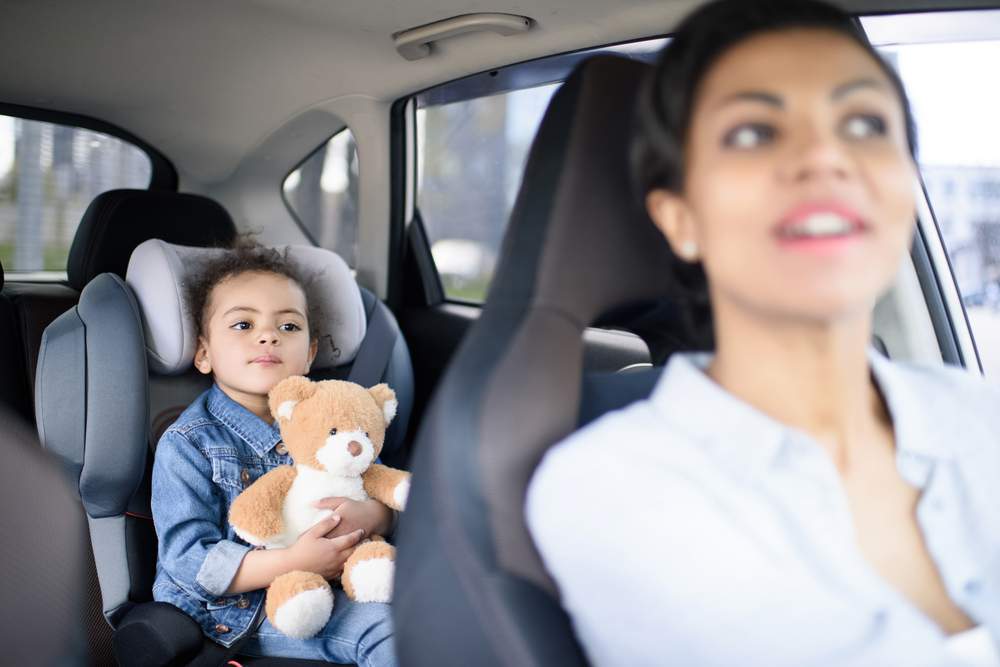Safe Driving Tips for New Parents
Driving with children in the car is one of the biggest challenges you can face. The noise they can create through tantrums, calling out, shouting etc can be very distracting for any parent.
We all know that your child needs to be securely strapped into an appropriate child car seat, and the rules are very strict on what these are. Make sure you always have the appropriate seat for your child’s weight and size. For information on this go to https://www.gov.uk/child-car-seats-the-rules.

The key to a safe journey is preparation. Whether the journey is 5 minutes to nursery or school, or a longer journey to visit relatives or go on holiday, being prepared will help you arrive at your destination safely and with as little stress as possible. So here are some tips to help you.
Five Top Tips -Safe Driving for New Parents
Establish Rules
Talk to your children about the rules of the car. If you have older children they can help with infants by setting a good example. Make sure that they know when you are driving, you are in charge.
If you say, not now, they need to wait and ask you that burning question until you tell them it is ok. Explain that this is for their safety as you need to concentrate. Also, no shouting, screaming, fighting etc as again you will find this very difficult to concentrate on the road.
No opening doors/windows while moving or sticking legs or arms out of them. This is not only distracting but very unsafe.
Keep seatbelts done up at all times as removing them could be fatal. Also, no throwing objects around the car as this could lead to the driver having an accident.
Keep a Watchful Eye
It is now widely recognised that babies and infants are safer in rear-facing seats. This, of course, means it can be unsettling for the new parent as they want to be able to check that their child is ok.
A simple solution is to install a mirror in the back of the car that you can glance in to check on your child. This will reassure you that your child is all right and that there are no issues. Just remember to only glance occasionally for safety reasons, don’t spend too long admiring your baby and end up rear-ending the vehicle in front.
If any issues arise, find a safe place to pull over and stop. Don’t try to deal with anything whilst you are driving, even if your little one has been sick. Arguments and fighting need to be dealt with while stationary too, try to tune them out until you can pull over.
Stop Objects From Causing Distractions
Make sure that, where possible, pacifiers and snuggly comfort friends are tethered to your child’s seat. Use books and toys that can be clipped on. This way you will avoid that oh so irritating wail when you hear the thud of the toy or dummy hitting the floor.
Make sure all shopping etc is stored away in the boot as should you need to suddenly break, these objects can easily fly through the air and strike driver or passenger and may cause a serious injury.
Safe Nursery and School Runs
There is never enough parking at a school, but try to plan ahead. Either leave a little earlier to get a good spot, or park a little further away and walk to the school gates. Don’t be tempted to park on the zig-zag areas or double yellow lines. Those areas are cordoned off for a reason, you will be putting your children and others in danger.
Plan Your Journey
We all know that children don’t like to sit for long periods of time. They become fidgety and start to get grumpy.
So if you are going on a longer journey, plan the route to incorporate toilet breaks and time to get out and stretch their legs.It is a good idea to take along quiet activities. Older children may enjoy playing games in the car such as eye spy. These games also make them focus out of the window which can help with travel sickness. Also, pack drinks and snacks. For some travel game activities take a look at our blog post 5 Fun Car Journey Games for Kids and Adults.
One Final Tip
Try not to drive tired. Easier said than done when you are a new parent. But remember, it isn’t just the kids that need a break.
